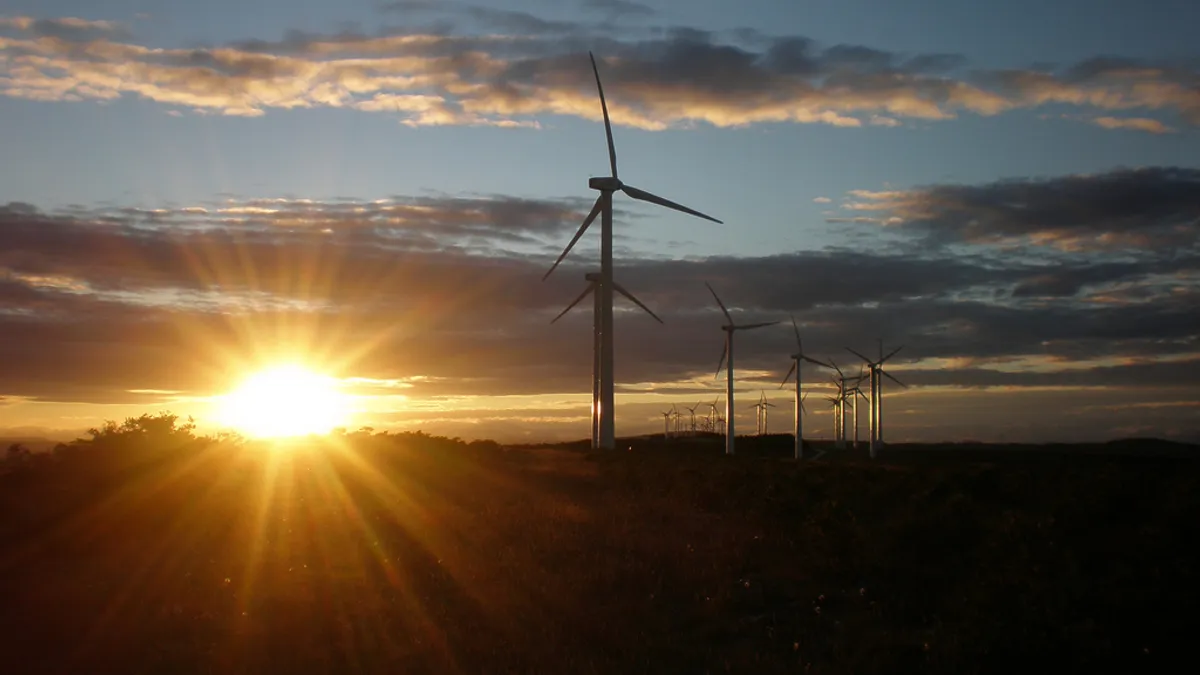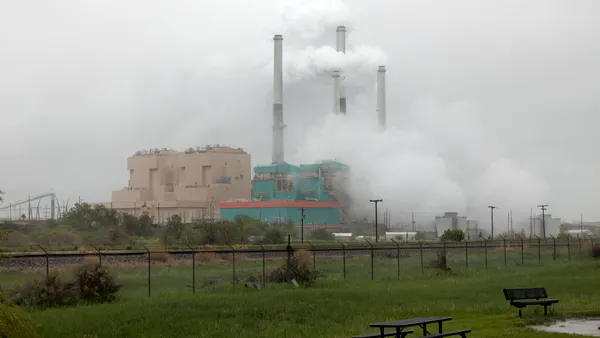Dive Brief:
-
94% of utility executives are worried that technology disruption will put electric distribution earnings under "severe pressure" between now and 2025, according to a study released Tuesday by Accenture.
-
A quarter of the 150 executives surveyed from more than 25 countries cited other utilities' performance as their biggest threat, indicating "a need to act quickly to remain competitive," according to the report. However, 97% of electric utility executives are also "optimistic" about those same earnings' growth beyond 2025.
- The study is part of a larger report on the impacts of increasing distributed energy resources (DER) on the grid and how utilities can respond to the shift.
Dive Insight:
The anticipated post-2025 earnings growth shows utility executive optimism about the sector's adaptation and long-term innovation, though the staggered path to that future could signal more growing pains. As the industry evolves, 54% of utility executives believe the post 2025 earnings spike will come from successfully-transitioned business models.
However, surveyed executives predict earnings pressure before 2025 will come from investments falling below depreciation, demand erosion and increasing service targets.
"Distribution businesses' revenues are being negatively impacted by the proliferation of distributed energy resources, tighter regulated revenue controls, and energy efficiency," said Stephanie Jamison, a managing director at Accenture, in a statement. "Improved operational performance will be key to succeeding in this transition."
DERs are a "key factor" to the power sector modernization process, according to the report. As traditional distribution grids are transitioned to accommodate higher levels of renewable energy, as well as the growing electrification in the heating and transportation sectors, initial infrastructure costs are expected to be high, but worth it in the long run.
According to Accenture, digital transformation is important to the modernization process, and it's where executives see the most long-term benefits: 59% said autonomous vehicles such as drones would positively impact their business operations past 2025 and 99% believe that artificial intelligence will be an everyday part of network planning by that time. Digital twin, virtual reality, blockchain and robots are all anticipated by around half of those surveyed to have a positive impact on operations and revenue past 2025.
"Distribution companies are well-placed to help accelerate the transformation process to create a more-distributed, low-carbon and customer-centric electricity system," Jamison said.















